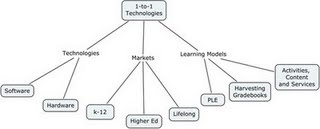Group 6, congratulations for the great work. Content was very much informative and engaging.
In this post, I’ll briefly try to reflect to one or more of the blog discussion topics you raised. From my own experience working for commercial IT companies, the OSS do exists in Egypt but with lower market share if compared to commercial software. There could be many reasons but the most obvious is the political power that international/global IT companies have established so far. For Example, company like IBM has established a research and commercial branch in Egypt since 1954, with this very early presence you can expect the type of relations IBM has with local government. Companies like Microsoft and Oracle had also established very strong connection with the government here. The driver for this type of partnership is a Win-Win situation, where commercial companies would offer very special prices and discounts as part of national-wide agreements, I recall few years ago there was an offer for college students to have Microsoft Office for less than $10. Of course with the economy of scale and future expansion would make such a deal justifiable. Initiatives to train K-12 teachers for almost zero cost encourages the ministry of education here to participate in Intel Future Teacher program, which mainly adopt the WinTel (Windows running over Intel processor) setup.
Another point I like to reflect on, is Moodle as open source. As M6 content showed, there are many ways to compare OSS with Commercial in terms of maintenance. Where I work now, we do offer Moodle services for our customers (Universities in the Middle East region). I’m always very careful when I promote Moodle to any prospect and make sure to set the right expectation. Many would be deceived that because it’s OSS there would be no hidden costs. On the contrary, you have to be prepared to host Moodle as if it’s a commercial software. You either need to have your own pool of resources who are very much capable of supporting Moodle and able to integrate it with other campus applications (like the Student Information System), or you should have a commercial agreement for support and maintenance with commercial company. That’s why beside Moodle.org , there’s Moodle.COM (the commercial arm of Moodle). But Moodle as OSS saves the customer the up front investment of purchasing users license, an excellent option to redirect part of the technology budget to other resources (hardware or other commercial applications). Nevertheless, I’ve ran into customers who don’t want to hear the word OSS !!, they want commercial and commercial only solutions, simply they want to deal with “real” single owner (a mortar and brick company) rather than virtual multiple owners – that is in thousands or even in millions -.
Still the OSS is attracting many developers here in Egypt and this is only one example http://www.eglug.org/ it’s the GNU Linux chapter in Egypt. Also I know of many other small companies who built their solution on top of OSS, biggest example I can think of web portals and content management solutions on top of Drupal and Joomla.

